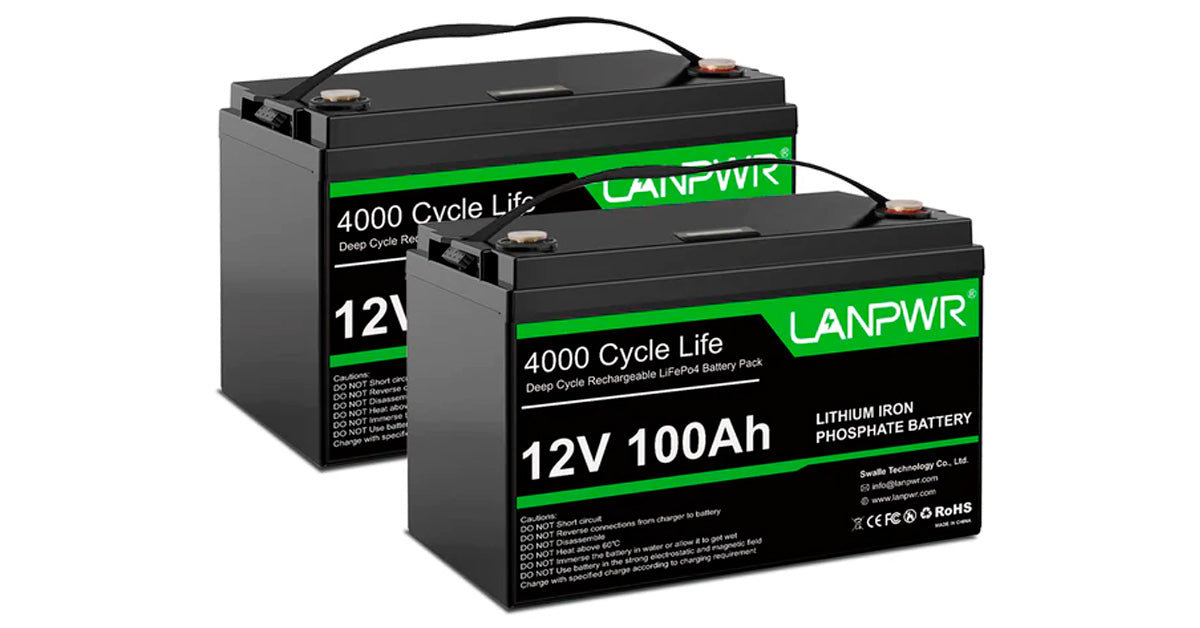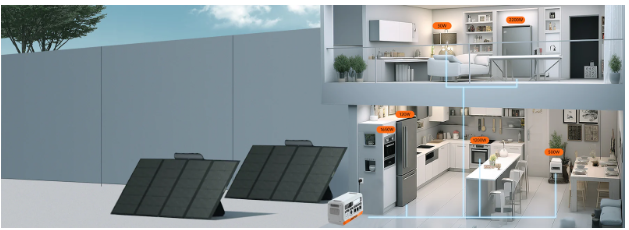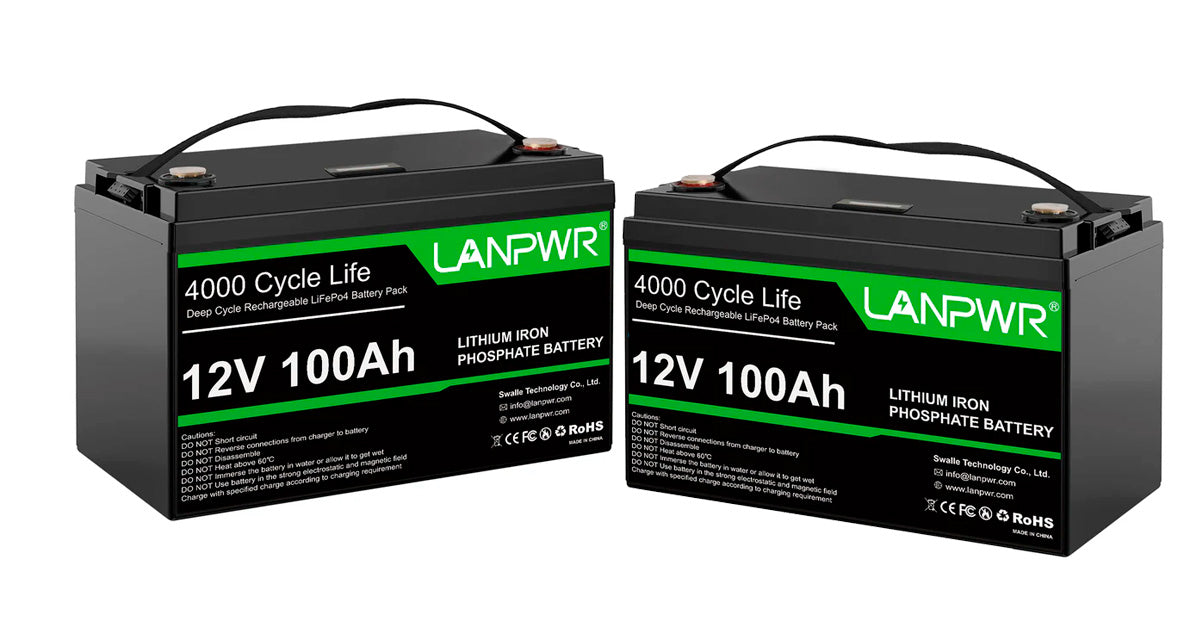Introduction
We invite you to investigate in-depth the battery system of any recreational vehicle. Batteries provide power for appliances and lights while on the road and ensure all other critical systems function when required. In particular, RV deep-cycle batteries have long been recognized as robust yet efficient solutions within RV environments, making them essential components.
Understanding Deep Cycle Batteries
Deep Cycle Battery
Deep cycle batteries are designed so they can be nearly fully discharged while still offering reliable performance for multiple cycles, in contrast to car batteries which only deliver instantaneous bursts to start-up engines. Deep cycle batteries make an excellent choice for RVs that need consistent power since their ability to tolerate multiple discharge and recharge cycles without degradation makes them the ideal option.
Types of Deep Cycle Batteries

Deep cycle batteries can be distinguished from standard ones by thicker plates, special active materials composition, and their capacity to endure prolonged discharge cycles without suffering damage from deep discharge events that would normally reduce battery lifespan over time. Deep cycle batteries were created specifically to combat damage from deep discharge events, which would normally shorten battery life.
Lead Acid Batteries
Lead acid batteries have long been an integral component of RV power systems and RVer's RVing lifestyles alike, due to their durability and long lifespan. They can be divided into the following categories of deep cycle battery types.
Battery Flooding: For optimal battery health, regular maintenance includes top-ups of water supplies and cleaning out terminals.
Gel Batteries: These sealed, maintenance-free batteries use electrolyte gel as their electrolyte to ensure no spills or leaks occur during their lifespan.
Battery AGMs (Absorbed Glass Mat): Battery AGMs offer both maintenance-free power and superior vibration management - making them perfect for RVers who travel frequently.
Other Battery Types
Battery technology has advanced immensely over recent years. Li-ion batteries have quickly become one of the preferred choices among RV users, with lithium-ion being especially prevalent and popular choices, such as the LANPWR 100Ah 12V LiFePO4 battery, which is one of its leaders, offering over 4000 cycles of deep cycling capacity and equipped with an intelligent 100A Battery Management System (BMS), to maximize both its performance and safety for optimal RV power solutions. A great investment choice for long-term power solutions, this battery makes an outstanding investment opportunity among RV users looking for reliable power solutions!

Selecting an Appropriate Deep Cycle Battery For Your RV
There Are Multiple Factors To Keep In Mind
When selecting the appropriate deep-cycle battery for your RV, various considerations need to be kept in mind:
Battery Voltage: For optimal and smooth RV system operation, it's key that battery voltage matches those required of it. To achieve optimal and compatible operation of your system, make sure it matches up as far as voltage goes.
Dimensions and weight: Your RV storage space will dictate which battery dimensions and weights can be accommodated by its capacity.
Environmental Impact and Safety: Modern lithium-ion batteries are constructed with environmental sustainability and safety in mind, featuring nontoxic and recyclable components.
Evaluating Battery Life and Health
Maintaining battery health requires understanding its essential characteristics and practices, as outlined here:
Make sure your battery can retain charge by performing regular tests on its ability.
Check for signs of failure or wear, such as decreased performance or difficulty charging the battery, before making your purchase decision.
Best Practices of Battery Charging and Maintenance
To maximize battery lifespan, charging them effectively is key. This should include things such as:
Utilize an appropriate charger for your battery type to ensure its full charging without overcharging, which may damage it and reduce maintenance needs.
Smart chargers should always be utilized, as they charge automatically to accommodate battery conditions and optimize charging efficiency.
Routine Battery Maintenance Section
Maintaining Fluid Levels:
Distilled water should always be used when maintaining fluid levels in flooded lead-acid batteries to avoid mineral accumulation and potential battery damage.
Regular inspections:
Keeping terminals free from corrosion will enable early identification and prolong battery lifespan.
Extending Battery Life Longer
Sustained Power and Efficient Use
For effective power management to extend battery lifespans over a longer period, an efficient power management system should be in place. Included below are:
Solar panels offer an effective means to both reduce battery load and keep a charge steady easily and affordably.
Be mindful of how much energy is being spent when using high-draw appliances such as computers or televisions, especially as these items tend to draw the most power.
Avoid Common Pitfalls
Here are a few strategies for avoiding mistakes:
The battery is not being charged regularly
Poor storage conditions for batteries can have devastating repercussions, particularly at temperatures that are harsh or volatile.
Advanced Battery Technologies and Future Trends
Innovations in Battery Technology
Battery technology continues to advance, leading to greater capacity, energy efficiency, and environmental friendliness.
RV Power System Enhancements
As technology evolves, more efficient and sustainable power solutions may soon power RVs, which should improve RVing experiences overall.
Conclusion
This guide is intended to assist RV owners in optimizing their battery life by understanding various battery types, charging practices, and maintenance regimens that best suit them, thus saving money while guaranteeing a safe travel experience for themselves and their travelers.
Follow these simple tips to maintain the condition of your RV battery and subscribe to our newsletter to gain additional knowledge of RV maintenance—it won't disappoint! Enjoy RVing.




Leave a comment
This site is protected by reCAPTCHA and the Google Privacy Policy and Terms of Service apply.